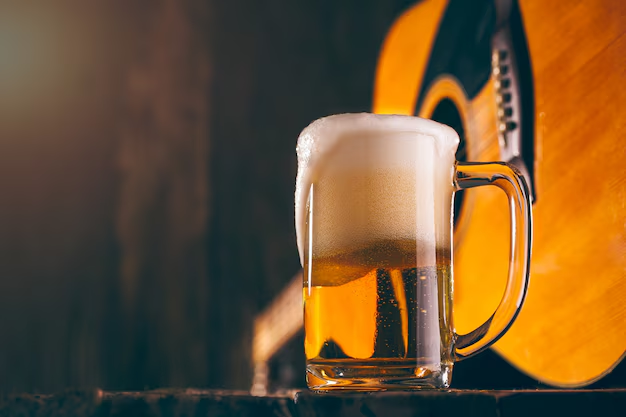
Johannes Brahms, one of the greatest composers of the Romantic era, was not just known for his symphonies, concertos, and chamber music—he was also famous for his love of beer. Unlike many other classical composers who had their quirks and indulgences, Brahms’ fondness for beer became a well-documented aspect of his personality. This love for beer was more than just a personal habit; it was deeply intertwined with his social life, creative process, and the broader beer-drinking culture of 19th-century Europe.
Brahms and His Love for Beer
Brahms was a frequent visitor to beer halls and taverns, particularly in Vienna and Hamburg. He often sought out these establishments not only for the beer but also for the atmosphere they provided—a place to engage in conversation, unwind, and immerse himself in the energy of the people around him. Unlike the image of the lonely, tortured composer, Brahms was quite sociable and found inspiration in these beer-drinking gatherings.
One famous anecdote about Brahms involves him being recognized by a fan in a pub. When the admirer asked for his autograph, Brahms, known for his wit, allegedly replied, “Here, buy me a beer instead, and I’ll be much more pleased.” This simple exchange reveals how much he valued the experience of drinking beer socially, seeing it as a means of relaxation rather than an extravagance.
Beer Culture in 19th-Century Vienna
During Brahms’ time, Vienna was a hub for both classical music and beer culture. Beer halls were places where intellectuals, musicians, and common folk mingled. The tradition of gathering over beer was deeply rooted in the social fabric of Austrian and German life. Many of Brahms’ contemporaries, including fellow musicians and critics, would have frequented the same beer halls, making them important venues for discussions on music, politics, and philosophy.
Brahms’ love for beer fit naturally into this environment. Drinking beer wasn’t just about indulgence—it was a cultural activity that brought people together, much like music itself. Many composers before and after Brahms, including Ludwig van Beethoven and Gustav Mahler, also had their connections to beer and drinking culture, but Brahms’ enthusiasm for it was particularly noted.
Beer’s Role in Brahms’ Creative Process
While it would be an exaggeration to say that beer fueled Brahms’ compositions, it certainly played a role in his life as a composer. The balance between solitude and socializing was crucial for his creative process. He would often spend hours alone composing, then seek out the lively atmosphere of a beer hall to recharge and engage with friends.
Additionally, Brahms was known to have enjoyed traditional German and Austrian folk music, much of which was commonly played in the same beer halls he frequented. Some of his compositions, such as his Hungarian Dances, reflect an appreciation for the rhythms and melodies that might have been heard in these settings. It is not far-fetched to assume that some of the musical ideas he absorbed during these beer hall visits influenced his works.
Legacy of Brahms, the Beer Swiller
Brahms’ beer-drinking habits have become part of his larger-than-life persona. While he is primarily remembered for his contributions to music, his love for beer makes him all the more relatable. In an era where classical composers are sometimes viewed as distant, almost mythical figures, Brahms’ appreciation for a good pint brings him down to earth. It reminds us that even musical geniuses had their simple pleasures.
Today, Brahms’ legacy lives on not only in concert halls but also in the taverns of Vienna and Hamburg, where one can still imagine the composer, beer in hand, laughing, debating, and absorbing the world around him. Whether you’re a musician, a beer lover, or both, Brahms’ story is a testament to the idea that great things—whether symphonies or friendships—can be brewed over a good drink.
Cheers to Brahms, the beer swiller!